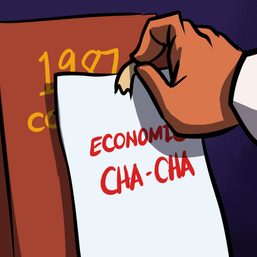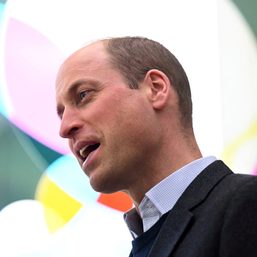SUMMARY
This is AI generated summarization, which may have errors. For context, always refer to the full article.

British government debt has exceeded £2 trillion for the first time following massive state borrowing as the coronavirus pandemic pushed the United Kingdom economy into a record recession, official data showed on Friday, August 21.
At the end of July, total accumulated debt hit £2.004 trillion ($2.61 trillion, 2.2 trillion euros), the Office for National Statistics (ONS) said in a statement.
That was equivalent to more than 100% of the country’s annual gross domestic product (GDP), or total economic output, for the first time since 1961.
By comparison, Apple this week became the first United States company to have a market valuation totaling $2 trillion (£1.5 trillion), boosted as it is seen as a key winner in the new post-coronavirus economy.
Compared with July 2019, UK debt increased by £227.6 billion, reflecting the huge increase in borrowing needed to tackle the pandemic.
‘Significant strain’
“This crisis has put the public finances under significant strain as we have seen a hit to our economy and taken action to support millions of jobs, businesses, and livelihoods,” finance minister Rishi Sunak said.
“Without that support things would have been far worse.”
Net borrowing between April and the end of July is estimated to have hit £150.5 billion, the ONS said.
Last month’s figure alone came in at £26.7 billion, as the UK emerged from a strict lockdown imposed at the end of March to curb the spread of the coronavirus.
“Today’s figures are a stark reminder that we must return our public finances to a sustainable footing over time, which will require taking difficult decisions,” said Sunak, whose official title is Chancellor of the Exchequer.
“It is also why we are taking action now to support the growth and jobs which pay for our public service, by helping businesses to reopen safely.”
Pound pummeled
The pound fell by more than 1% against the dollar on Friday as the European Union and Britain traded blame for the lack of progress after the latest round of post-Brexit trade talks, with Brussels warning that a deal looked unlikely.
Sterling was changing hands at $1.3074 in afternoon trade, compared with $1.3214 late Thursday, August 20.
The pound is being punished “by Brexit talks which seem to be going nowhere,” said Neil Wilson, analyst at Markets.com.
“The two sides are still far from reaching agreement on key terms” of their post-Brexit relationship.
Retail recovery
Separately, data showed that British retail sales jumped by 3.6% in July from June as shops, restaurants, and pubs reopened.
“Retail sales have now regained all the ground lost during the height of the coronavirus restrictions as more stores open for trade and online sales remain at historically high levels,” ONS statistician Jonathan Athow said.
“While still below their pre-pandemic levels, both fuel and clothing sales continued to recover.
“Meanwhile, food sales fell back from their recent peaks as people started to venture back into pubs and restaurants,” Athow said.
Marks & Spencer, the British food and clothes retailer, announced this week that it was cutting 7,000 jobs as COVID-19 increasingly pushes customers to shop online.
The company joins the likes of UK department store chains Debenhams and John Lewis, as well as pharmacy group Boots, in cutting thousands of jobs owing to pandemic fallout.
Britain’s economy shrank by one-fifth in the 2nd quarter, more than any European neighbor, as the lockdown plunged the country into its deepest recession on record.
Even though the UK economy is beginning to rebound as the government eases strict confinement measures – private sector output grew rapidly in August according to data on Friday – analysts expect a surge in unemployment by the end of the year.
In October, Sunak plans to end the government’s furlough scheme that is paying up to 80% of wages for around 10 million workers during the pandemic. – Rappler.com
Add a comment
How does this make you feel?


![[Time Trowel] Evolution and the sneakiness of COVID](https://www.rappler.com/tachyon/2024/02/tl-evolution-covid.jpg?resize=257%2C257&crop=455px%2C0px%2C1080px%2C1080px)












There are no comments yet. Add your comment to start the conversation.